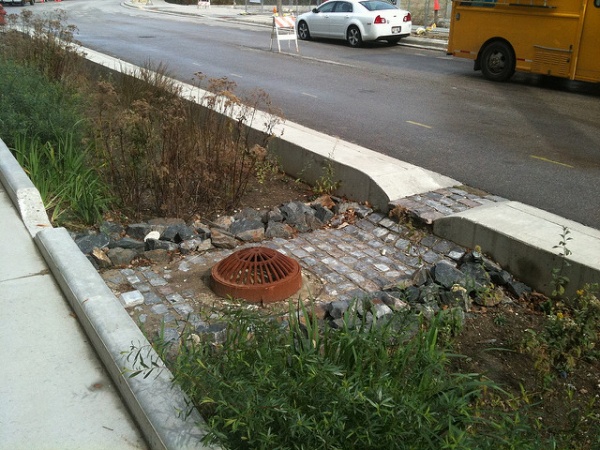Difference between revisions of "Pretreatment features"
Jump to navigation
Jump to search
Jenny Hill (talk | contribs) |
Jenny Hill (talk | contribs) |
||
| Line 4: | Line 4: | ||
</div> | </div> | ||
<div class="col-md-4"> | <div class="col-md-4"> | ||
<gallery mode="packed" widths=300px heights=300px> | <panelSuccess> | ||
<gallery mode="packed" widths=300px heights=300px> | |||
Forebay AV.jpg| Forebay connected to drainage area in the roadway with a curb cut, overflow visible in the centre of forebay area, Milwaukee, WI | Forebay AV.jpg| Forebay connected to drainage area in the roadway with a curb cut, overflow visible in the centre of forebay area, Milwaukee, WI | ||
<br>[[Acknowledgements| Photo credit: Aaron Volkening]] | <br>[[Acknowledgements| Photo credit: Aaron Volkening]] | ||
</gallery> | </gallery> | ||
-- | </panelSuccess> | ||
</div> | |||
<div class="col-md-12"> | |||
Revision as of 17:21, 12 July 2017
Forebays are a form of pretreatment for open inlets. By dissipating the energy of incoming flow and causing suspended particles to drop from the water. This sediment can then be easily swept or vacuumed during routine maintenance and doesn't end up clogging downstream biomedia or filter material. A well designed forebay will also spread the flow somewhat, reducing erosion around the inlet.
